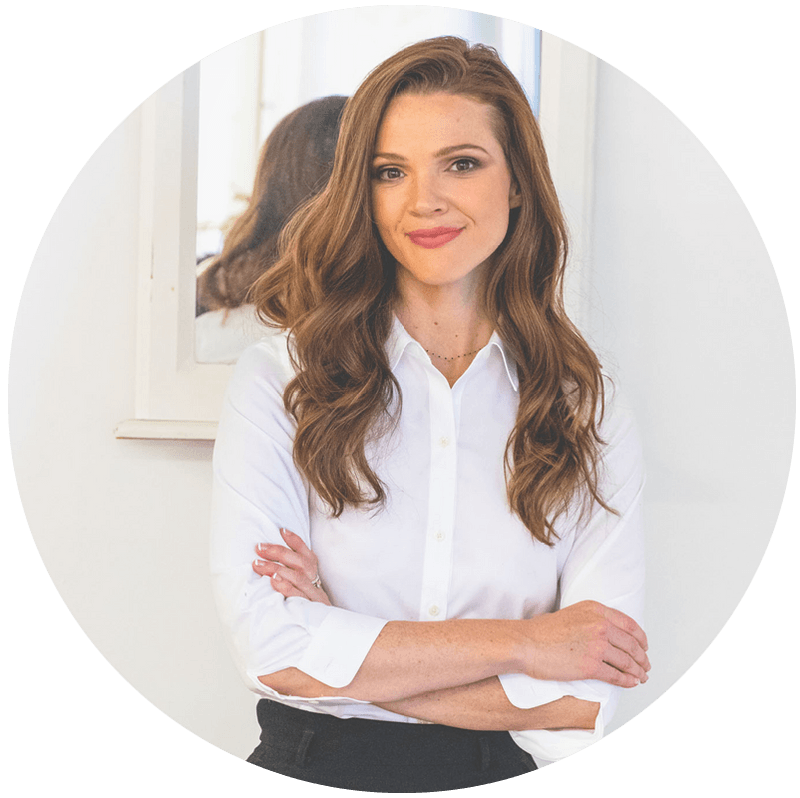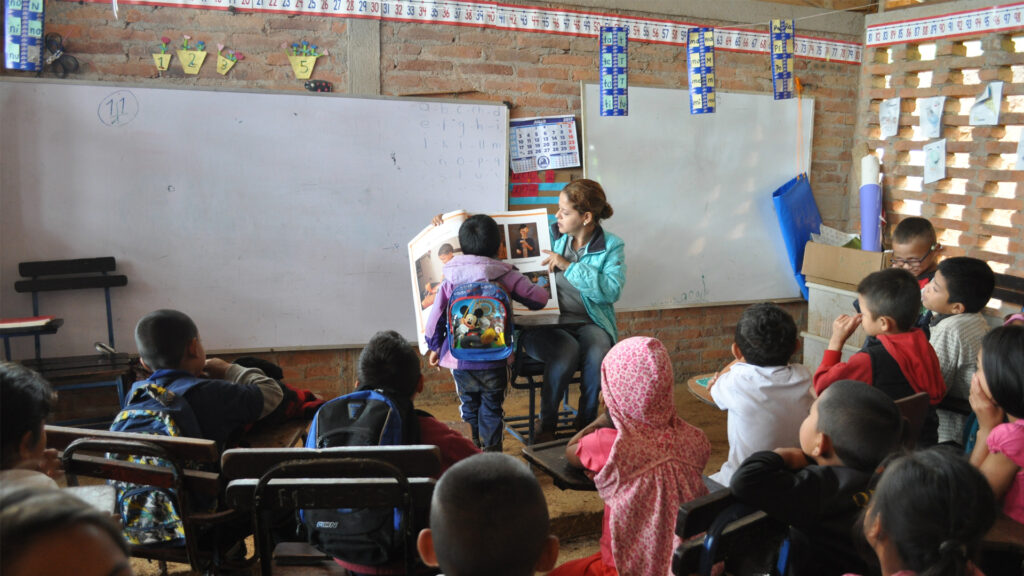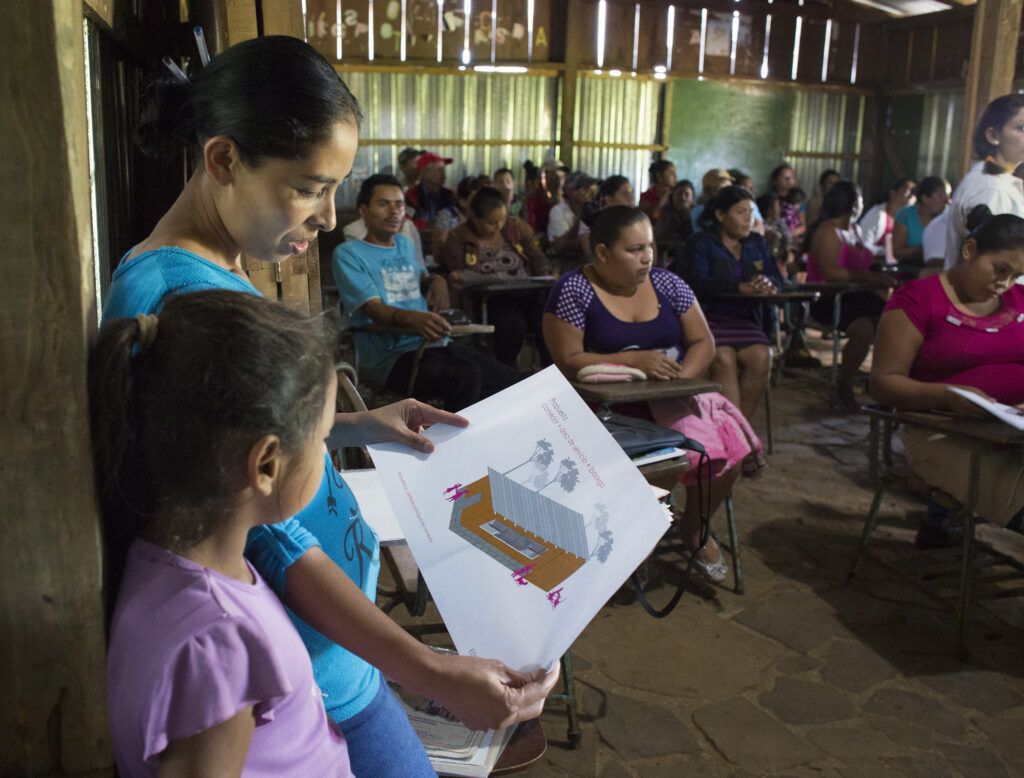By Autumn N. Bryan, FAU Center for Environmental Studies
The following is a Q&A conducted with Kristin Van Busum, founder of Project Alianza. The women-led education nonprofit organization is working to close the education gap for children in rural areas throughout Central America that are vulnerable to climate change. This interview has been edited for length and clarity.
Tell us about Project Alianza and the work you’ve been doing on coffee farms.

Project Alianza was founded in 2014 in Guatemala. We expanded to Nicaragua two years later. At Project Alianza our work is to fill the rural education gap. We hire skilled local women to provide high-quality education. We are also integrating new technology solutions so more kids have access to high-quality reading materials.
Where we work, more than 80% of kids will either drop out of primary school or complete it without being able to read a simple sentence. So, we’re working to address some of the fundamental challenges in these communities by letting women lead the way, by giving more of the money to women so they have financial freedom and influence and stability to thereby improve their community.
Our business model is built to help women and our outcome is made to help children and youth. Last year, we had a 98% retention rate among kids and our target is 80%.
I would love to hear what education means to you in the terms you’re using, because it potentially looks very different than the education in South Florida.
There are two main programs we’re running. One is the network of women we call community educators, and we’ve created it with the VoLo Foundation, which sponsors the payments these women receive.
Some of the women are trained as mentors and they are matched with local girls to do home visits, provide scholarships and be mentors as the girls go through school. Girls are particularly vulnerable to dropping out after primary school. And by simply giving the financial stipend and having someone that addresses their challenges, we see significant improvements in retention. Where we work, it’s estimated that around half of students drop out. With our program, over 90% of the girls stay in school.

These are obviously very climate-vulnerable areas. People are so focused on survival; sustainability is not even on the radar. So, to build a resilient community, to care for natural resources, we first have to make sure people’s basic needs are taken care of. And that’s where we come in, empowering people that are in very climate-vulnerable areas.
The second thing we do is train the same group of local women on a reading methodology that helps children learn to read within three to six months, or a child can advance their literacy. It’s a methodology that’s all over the world, but what we do uniquely is adapt it specifically for rural Central American communities. The content we present is developed by local women.
We use stories where a child is going on an adventure through a jungle in their community. We use local animals, local plants. Local, indigenous names. It’s all adapted for their experience. It helps unlock the connection to their abundance of natural resources. They are abundant. There is beauty around them and that’s the value we add.
Beginning last year, we started developing an offline app that has stories that can be accessed through the cheapest Android phones and tablets. And so these children are going to have even more of an abundance, are going to have more access to these reading games, word games and stories built just for them.
When you were motivated to found Project Alianza, did climate change play a direct role in your decision at all, was it something you had considered or was it something you came to learn more about?
Because it’s so intersectional it’s something you can’t escape. When I started this, I was looking at the needs of the communities. We’re in rural villages. And if you go to these communities and say, “Hey, what are your challenges? What are your needs?” One of the top three things they’re going to say is something about how their local weather patterns have changed, about how it affects their crops.

It’s impossible to be a farmer and do things sustainably when you’re this poor, and clearly that’s attached to not having an education, so it’s impossible to have discussions about need, and ignore climate. They’re not going to say, “Because of climate change, my coffee isn’t viable.” “The weather patterns have changed, and I lost my crop” — those are the types of things you hear over and over and over again …
Recently, there were two really big hurricanes, one after the other (Hilary and Idalia). These communities are used to the rainy season, but it’s not normal for two hurricanes to hit. Generation after generation, they just adapt; they change up their routine, the kids commute to school differently.
Everybody knows how to adapt, but because weather patterns are changing so rapidly, one of these communities had a massive landslide and they were literally decimated. The whole community was wiped out and we ended up building 17 schools and they were used for shelters.
Why focus on coffee?
It’s all interconnected. It’s the intersection of all of it. It just makes sense — coffee is very vulnerable. Because climate affects it so much, it’s a volatile crop. And that means that people working, especially in the agrarian side, and the producing side, they’re incredibly disadvantaged.
If your whole community has relied on picking coffee and suddenly coffee can’t grow anymore, then what do you do with your life? I am constantly asking myself, where could we have the greatest impact? Here, there’s a lot of need. Climate change is affecting the local economy. And that also affects education.
How do you think nonprofit organizations like Project Alianza foster agents of change for future generations?
Project Alianza focuses on quality education, valuing localized and inclusive decision making. The design features of our program come from the community. Most of our staff are young women that end up becoming teachers in the public education system after they work with us.
We pay for them to go to university. We pay for them to get their driver’s license. We pay for them to take computer classes, and then they go off and get great jobs and become embedded in their local economic system. So, we’re investing in them to become better versions of themselves.
In some cases, the women end up buying plots in their village and become stewards of their land. And they use that money to invest in their children’s education. It’s a beautiful, virtuous cycle.
This Q&A was conducted by Autumn N. Bryan, a graduate student at Florida Atlantic University who is pursuing a master’s degree in the geoscience program. She works as a research assistant and reporter for FAU’s Center for Environmental Studies. The center manages and funds The Invading Sea.
Sign up for The Invading Sea newsletter by visiting here. If you are interested in submitting an opinion piece to The Invading Sea, email Editor Nathan Crabbe at ncrabbe@fau.edu.



